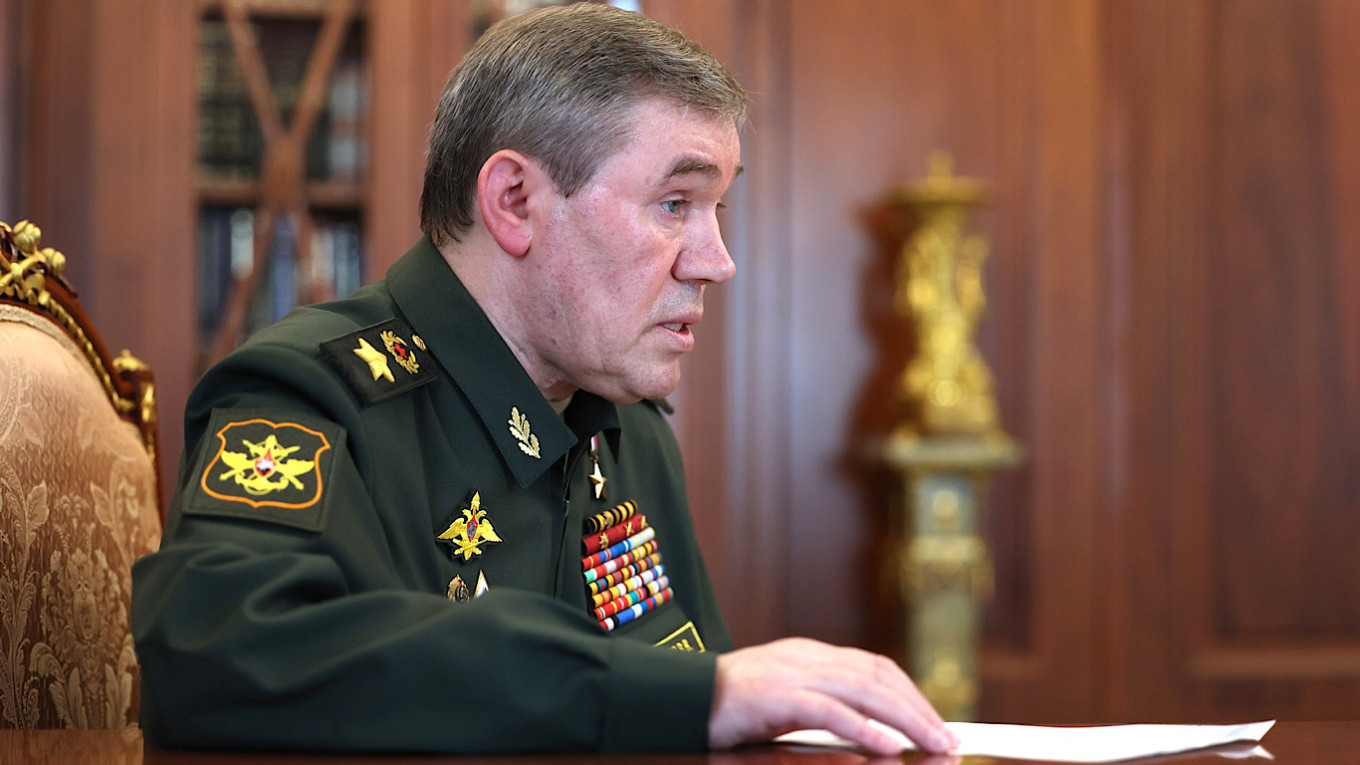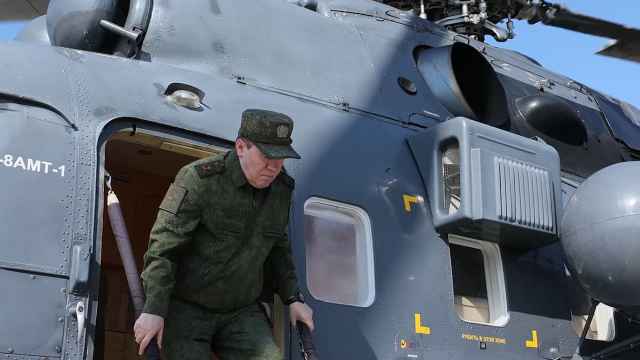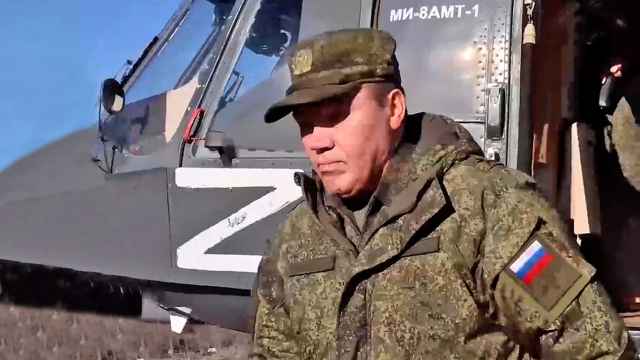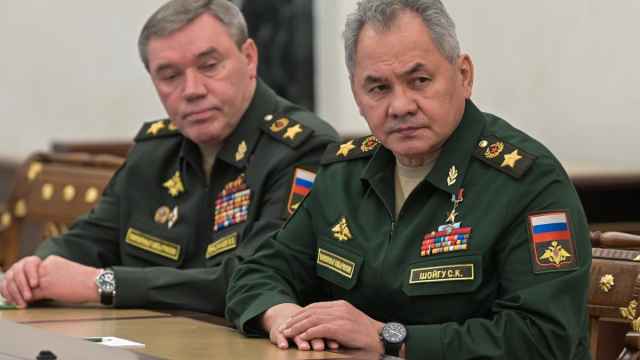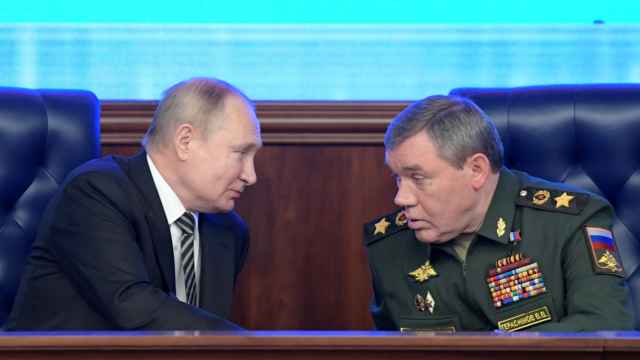Military experts and Russian pro-war bloggers have dismissed what they say are inaccurate claims by Russia’s top general that Kyiv’s forces were encircled near the embattled cities of Pokrovsk and Kupiansk, which Moscow has been trying to capture for months.
In footage released by the Kremlin on Sunday, Chief of the General Staff Valery Gerasimov told President Vladimir Putin that up to 10,000 Ukrainian soldiers were “encircled” near Kupiansk in the Kharkiv region and Pokrovsk, one of Kyiv’s last major strongholds in the Donetsk region.
“This does not correspond to reality at all,” military expert Ivan Stupak, a former officer of Ukraine's SBU security service, told The Moscow Times of Gerasimov’s assertion.
Even some Russian military correspondents questioned Gerasimov’s statement even though “they often go along with Russian propaganda in certain cases,” Stupak noted.
In a post entitled “Enemies have once again infiltrated Comrade Gerasimov’s encirclement,” the pro-war Telegram channel Voyennyy Osvedomitel' (Military Informant) told its 620,000 followers that there are currently “no encirclements.”
“It is highly unlikely that a multi-thousand-strong Ukrainian force is still entrenched within the Pokrovsk-Myrnohrad agglomeration. Modern realities are such that fighting is conducted by small infantry units, both in defense and in offense,” the post said.
This also “applies to Kupiansk, where 18 Ukrainian battalions were reported to be encircled,” it added.
“Perhaps Gerasimov, with his boastful ‘ahead-of-time’ reports, is once again running ahead of the situation, hoping that the reality on the ground will soon catch up with his accounts,” Voyennyy Osvedomitel' said.
War correspondent Andrei Filatov called Gerasimov’s report “premature,” adding that “to bring logistics under fire control does not mean to encircle.”
Pro-war Telegram channel Svideteli Bayraktara said “our fighters are in Pokrovsk, but you don’t see armored columns breaking into the city’s built-up areas. Small groups are infiltrating the city and conducting its clearance very carefully.”
The Tactical Medicine Courses Telegram channel, which covers military medicine and raises funds for the war in Ukraine, noted that the Russian army encircled Pokrovsk “so that the distance between the flanks is almost six kilometers,” implying that the Russian military didn’t not fully encircled it.
The U.S.-based Institute for the Study of War (ISW) said it “has not observed evidence to support Gerasimov’s claims.”
Michael Kofman, a senior fellow in the Russia and Eurasia Program at the Carnegie Endowment for International Peace, also said “there is no mass encirclement of Ukrainian forces at Kupiansk, and a host of other claims [by Gerasimov] are equally untrue.”
Ukrainian President Volodymyr Zelensky on Tuesday called the Russian army report “a lie.”
Russia was “showing [the Americans] maps already marked with Pokrovsk as captured, claiming they’ve reached the Dnipro region and seized 90% of eastern Ukraine…In my opinion, they don’t have the kind of result they can ‘sell’ to the Americans,” Zelensky said, referring to attempts to continue Ukraine peace talks between Moscow and Washington.
The Ukrainian General Staff said Sunday the situation near Pokrovsk remained “complicated” and confirmed that 200 Russian personnel were stationed there, while Kyiv “repelled four enemy attacks” near Kupiansk.
On Tuesday, it said that Russian forces carried out 79 assault attempts in the Pokrovsk direction and nine attacks near Kupiansk the previous day.
According to Stupak, Pokrovsk is important for the Russian army’s advance in the Donetsk region, which Moscow claims as its own territory. However, from an infrastructure standpoint, the capture of Pokrovsk and Kupiansk would simply mean yet another Ukrainian city left completely destroyed by the war, similar to Bakhmut and Avdiivka before them.
“Putin’s and Gerasimov’s claims of battlefield victories are part of the ongoing Kremlin cognitive warfare effort to falsely portray a Russian victory as inevitable,” the ISW said.
Gerasimov had previously overinflated his report on Russia’s summer offensive in August, when he claimed major victories across eastern and southern Ukraine. At the time, experts and pro-war bloggers said the scale of those gains had been exaggerated.
Stupak said such statements from the Russian General Staff are likely “part of the information war, which also affects the minds and will of people” — aiming to create the impression that the Ukrainian front is collapsing.
A Message from The Moscow Times:
Dear readers,
We are facing unprecedented challenges. Russia's Prosecutor General's Office has designated The Moscow Times as an "undesirable" organization, criminalizing our work and putting our staff at risk of prosecution. This follows our earlier unjust labeling as a "foreign agent."
These actions are direct attempts to silence independent journalism in Russia. The authorities claim our work "discredits the decisions of the Russian leadership." We see things differently: we strive to provide accurate, unbiased reporting on Russia.
We, the journalists of The Moscow Times, refuse to be silenced. But to continue our work, we need your help.
Your support, no matter how small, makes a world of difference. If you can, please support us monthly starting from just $2. It's quick to set up, and every contribution makes a significant impact.
By supporting The Moscow Times, you're defending open, independent journalism in the face of repression. Thank you for standing with us.
Remind me later.



